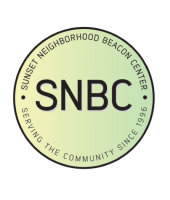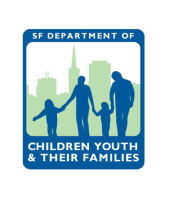What’s up, it’s Belle! With school ending in just a few weeks for me, classes are getting more and more stressful. And with AP tests and finals coming up soon, I’ve been even more preoccupied than ever. When stressed out, it’s important to remember to do things that make us happy. And speaking of which, can I tell you guys something? Recently, many of my friends have been asking me about veganism, and their genuine curiosity just makes my day. It’s so exciting when people text me to tell me about the vegan lunch they had, or tell me about the vegan cupcakes they made. I don’t know how else to put it, but it’s simply just an incredible and joyous feeling. Veganism is so important to me and there’s almost nothing better than sharing what you love with the people you love!
With that in mind, I was Skyping with a dear friend of mine, and he told me that a friend of his had questions about veganism. It was like music to my ears. Her name was Roma, and we all ended up in a Google Hangout that night, thus inspiring this post. Talking to her about going vegan really brought me back to a few years ago, when I was transitioning too. I put myself in her shoes, and I remember how intimidating and daunting transitioning to this lifestyle was to me. Being the only vegan (or vegetarian even) in my whole family, I definitely had my hardships when it came to becoming vegan. And Roma’s on the same page. But to break down veganism into more bite-sized and digestible (pun intended) pieces, I’ve decided to answers the questions she had the night (plus a few more) here on Earth to Belle.
1. Is veganism healthy?
If you choose to eat a healthy vegan diet, then yes, it can be very healthy. If you choose to eat Oreos and Sour Patch Watermelons everyday, then no, it will not be very healthy at all. So basically, if done right, veganism will most likely be one of the best choices you will make in your entire life.
“The question isn’t what can we live off of, but what type of diet maximizes health and longevity, decreases killer and common diseases. The balance of evidence overwhelmingly points to a whole food plant-based diet.”
-Michael Greger M.D
2. How do vegans get protein?
Amazing vegan athletes like Venus Williams, Billy Simmonds, Mike Tyson, Carl Lewis, Mac Danzig, and more have all done their part to banish the negative stereotypes that vegans aren’t just frail hippies. Such athletes prove that plant-based protein can not only build strong muscles, but can make a vegan healthy enough to run, swim, bike, dance. or pump iron. In fact, large-scale research like The China Study has revealed that too much protein, namely animal protein, is harmful for your health. Other research has shown that excess protein in your body can strain your kidneys or cling as fat.
Here are just a few sources of vegan protein:
Quinoa (1 cup): 8g, including all nine essential amino acids that the body needs for growth and repair, but cannot produce on its own.
Nuts & nut butter (2 tbsp): 8g
Beans (1 cup): Kidney beans for example are 15.3g. All beans have varying protein levels. Canned beans are just as good!
Chickpeas (½ cup): 7.3g
Tempeh (½ cup): 15g
Tofu (½ cup): 20g
Edamame (1 cup): 20g
Non-Dairy Milk (1 cup): 8g
Lentils (1 cup): 18g
Brown Rice (1 cup): 5g
Cooked Spinach (1 cup): 5g
Chia Seeds (2 tbsp): 5g
Flaxseeds (2 tbsp): 4g per
Avocado (1 cup): 4g
Whole grain bread(two slices): 8g (fyi I love Ezekiel bread)
Buckwheat (1 cup): 6g
Hummus (2 tbsp): 7g
Hemp seed (2 tbsp): 10g
(Remember that you don’t have to intake all of a day’s worth of protein in one meal. You can incorporate protein all throughout the day, especially in snacks.)
3. How do vegans get iron?
The Food and Nutrition Board at the Institute of Medicine recommends the following amount of iron for each person:
Males:
9-13yrs: 8mg/day
14-18yrs: 11mg/day
19yrs+: 8mg/day
Women:
9-13yrs: 8mg/day
14-18yrs: 15mg/day
19-50yrs: 19mg/day
51yrs+: 8mg/day
And again, here are just a few sources of iron for vegans:
Tofu (1/2 cup): 6.6mg
Spirulina (1 tsp): 5mg
Cooked Soybeans (1/2 cup): 4.4mg
Pumpkin seeds (1 oz): 4.2mg
Quinoa (4 oz): 4 mg
Blackstrap Molasses (1 tbsp): 4mg
Tomato Paste (4 oz): 3.9mg
White Beans (1/2 cup): 3.9mg
Dried Apricots (1 cup): 3.5mg
Cooked Spinach (1/2 cup): 3.2mg
Dried Peaches (6 halves): 3.1mg
Prune Juice (8 oz): 3mg
Lentils (4 oz): 3mg
Peas (1 cup): 2.1mg
Dark Chocolate (1 oz): 2.3mg
4. How do vegans get B12?
B12 is a vitamin found in soil. In fruits and vegetables, B12 is only found in organic, and nutrient-dense produce. However B12 is also produced naturally in your colon, so it’s important to get your blood checked before you start taking a B12 supplement because your colon may stop producing it, and your body may even become dependent on the supplement. But if you are indeed deficient and you do want to take a supplement, keep in mind that there are two types of B12: cobalamin and methylcobalamin. I suggest you take methylcobalamin because it absorbs into your system the easiest of the two.
B12 deficiencies are not just a vegan thing though. Anyone can be deficient. So to sum it up, get your blood checked. And if you do want to supplement, there’s no reason to feel bad about doing so.
5. How do you transition to veganism?
Take it one day at a time. Show yourself compassion and don’t beat yourself up if you slip up. Veganism is about love and ethics, and so it’s important to remember to be kind to yourself as well! If you’ve eaten meat your entire life, the idea of becoming vegan may seem impossible. Take as much time as you need, and know that week-by-week your diet is moving in the right direction. If you’re not enjoying the process, it probably means you’re not trying enough new foods. Don’t be afraid to experiment!
6. Isn’t going vegan expensive?
No, it’s not any more expensive than eating meat! Vegan food will be as pricey as you choose to make it. But the staples (grains, beans, greens, and fruit) are all relatively inexpensive. There are many ways you can be vegan on a budget. Here are some great resources to check out:
- How I Maintain a Very Humble (Low) Budget Eating Vegan, Without Any Sacrifice
- The No-Nonsense Guide to Eating Healthy and Vegan Without Going Broke
- Plant based on a Budget (recipes)
- How to be a Broke Vegan
- The Collegiate Vegan
7. How do I eat out at non-vegan restaurants?
I go to non-vegan restaurants 98% of the time because they’re everywhere! It’s good to eat vegan at these restaurants because it encourages vegan awareness. Perhaps the next time you go back to a non-vegan restaurant, they’ll even have a vegan section on their menu! Here are a few tips to keep in mind when eating out:
- Call beforehand for options or look at their menu online.
- See if they have a vegetarian option and work from there.
- Learn how to substitute ingredients! Instead of chicken, go for tofu. Instead of egg, ask for more vegetables. Don’t be afraid to swap items and order off-menu. Restaurants are often very accommodating because it allows the chef to really have fun with their craft. Be creative, the possibilities are endless!
- If you think options will be severely limited, eat beforehand.
- If you want to seek out vegan restaurants, HappyCow.net is a great website. They also have a convenient app for on-the-go use.
- Don’t sweat it! Enjoy the experience. At the end of the day, it’s just food.
I hope this is helpful and informative for anyone with questions. Thanks for reading.
Dedicated to Roma





